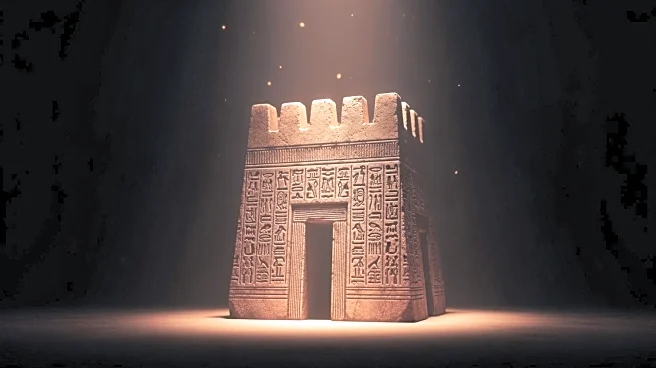What's Happening?
Archaeologists in Egypt have uncovered a 3,000-year-old fortress at the Tell El-Kharouba archaeological site in Sheikh Zuweid, North Sinai. This fortress, dating back to the New Kingdom period (1550-1070
B.C.), is believed to be part of the historic military road mentioned in the Book of Exodus. The Egyptian Ministry of Tourism and Antiquities announced the discovery, highlighting its significance as one of the largest fortresses found along the Horus Military Road, which connected Egypt to Canaan. The site revealed pottery fragments, ceramic vessels, and a jar handle stamped with the name of King Thutmose I. The fortress, covering 86,100 square feet, was equipped with eleven defensive towers and served as a strategic military outpost.
Why It's Important?
This discovery provides tangible evidence of Egypt's ancient military strategies and its historical connections to biblical narratives. The fortress's location along the Horus Military Road underscores its role in protecting Egypt's eastern borders and securing trade routes. The find enriches our understanding of Egypt's New Kingdom period and its military history, offering insights into the region's geopolitical dynamics during that era. The archaeological evidence, including the pottery and stamped jar handle, helps historians piece together the daily lives of soldiers and the logistical operations of ancient Egyptian military outposts.










